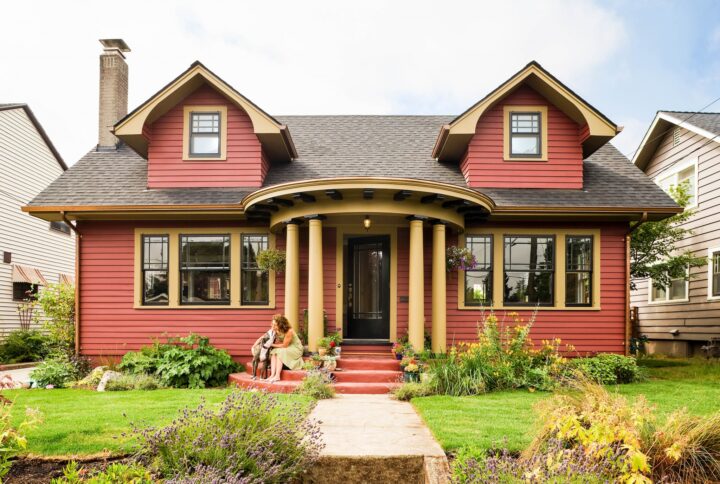How Much Are FHA Closing Costs?


Written by Alycia Lucio on December 5, 2024
FHA closing costs are the fees you’ll pay to secure a FHA loan. They include fees owed to your lender for processing the loan, and third-party fees to cover the costs of other requirements like a home inspection, appraisal, and title transfer. Compared to other loan types, FHA closing costs come with some unique fees and limits to make this loan option more affordable and available to lower income borrowers.
Here’s a quick breakdown of FHA loan closing costs.
FHA closing costs
Lender fees
Lender fees cover the costs of processing your mortgage application to determine your creditworthiness and lending risk. The types of fees you’ll pay vary by lender and location, but the Federal Housing Administration has rules to prevent lenders from charging disproportionate fees for the total loan amount.
For FHA loans, lender fees typically include:
- Origination fee for making your loan, including the cost to underwrite your loan
- Processing fee for filing your loan application and checking your credit
- Document fee for preparing your loan estimate and closing disclosure
- Rate lock fee for a mortgage rate guarantee or extending the rate lock duration
- Mortgage point fees for optional rate buy-downs
Zillow Home Loans offers FHA loans with no hidden fees and guidance every step of the way. Check how much you pre-qualify to borrow with us at Zillow Home Loans*.
Upfront mortgage insurance premium (UFMIP)
One of the requirements for taking out an FHA loan is paying an upfront mortgage insurance premium, which is 1.75% of the home’s purchase price. If your loan amount is $350,000, your UFMIP will be $6,125. The UFMIP is typically paid in cash at closing, but it can be rolled into your mortgage and paid monthly as part of your mortgage payments. To avoid paying the UFMIP, you must make a 25% down payment.
Third-party fees
Other fees related to FHA closing costs will vary depending on your location. Third-party closing fees are mandatory and typically include the following:
- Title search and title insurance: The cost of researching property records to ensure clear ownership and insuring against future title liens. The title search can cost between $100 and $250, while title insurance can range from $500 to $3,500 per policy.
- Credit report fee: Covers the credit pull from each credit bureau and typically costs around $35.
- Recording fees: Cover the cost of officially recording the new deed and mortgage with local government offices. The average recording fee throughout the U.S. is $125.
- Notary fees: Pay for a notary public to witness and authenticate the signing of the mortgage documents. This can cost up to $200, depending on the type of notary and their specific fees.
- Home appraisal fees: A home inspection and appraisal are required with all FHA loans. The cost of the home appraisal can range from $410 to $590.
- Courier fees: Pay for secure transport of important loan documents between the parties involved in the transaction. These fees can range from $30 to $100, depending on the courier your lender works with.
- Real estate attorney fees: If you hire a real estate attorney, you’ll pay for their legal services, such as reviewing contracts and advising you on the legal aspects of the home purchase. Real estate attorney fees depend on what the individual attorney charges per hour, but typically range from $150 to $500.
- Flood elevation certification fee: Covers the evaluation of the property to determine whether it’s located in a flood zone. Flood certification fees cost an average of $600, but can range up to $2,000 depending on the property size, location, and terrain.
Additional FHA loan costs paid at closing
Prepaid expenses
Prepaid expenses, or prepaids, are the payments you make for certain homeownership costs to ensure the funds are available by the time they’re due. This usually includes the first set of payments for your annual mortgage insurance premium (MIP), mortgage interest, property taxes, homeowners insurance, and any homeowners association (HOA) dues. Your lender will hold these funds in an escrow account and ensure they’re dispersed to the correct party once due. Prepaid expenses are not included in your closing costs, as they are the start of your recurring payments as a homeowner.
Earnest money
Earnest money is also referred to as a good faith payment, as it’s an optional deposit you can make to the seller to prove your commitment to buying the property. These deposits typically cost between 1% and 3% of the home’s purchase price and are separate from your closing costs. If you choose to make an earnest money deposit, you must pay within three days of agreeing to the purchase contract in writing. At closing, your earnest money deposit is applied as a portion of your down payment. For instance, if you put 1% of the purchase price as earnest money deposit, you would only put down 2% more for a 3% down payment.
Down payment
Your down payment accounts for 3% to 20% of the home’s purchase price and is expected to be paid at closing. Like the prepaid expenses and earnest money deposit, your down payment is also separate from your closing costs, as it doesn’t include lender or third-party fees related to producing the loan. You can estimate your down payment amount using our down payment calculator.
How much are closing costs on a FHA loan?
FHA closing costs are 2% to 6% of your total loan amount. If you take out a $300,000 loan, your closing costs may range from $6,000 to $18,000. The actual amount will vary by lender and location. Lenders set their own fees, and your county tax assessor will set administrative fees.
How to reduce closing costs on a FHA loan
Negotiate with your lender
You can always discuss the closing costs with your lender and ask if they can reduce or waive certain fees. Some lenders may be willing to accommodate your request to make their loan offer more competitive. Before closing, compare FHA loan offers from multiple lenders to ensure your lender of choice offers you the best loan terms.
Ask for seller concessions
You can request the seller contribute to your closing costs as part of your initial offer. FHA loans allow seller concessions of up to 6% of the home’s purchase price towards the buyer’s closing costs. While concessions can significantly reduce your closing costs, housing market conditions and demand often impact whether a seller agrees to make concessions. You’re more likely to receive seller concessions in a buyer’s market or when there are more houses for sale than being sold.
Apply for down payment assistance
Each state has its down payment assistance programs for homebuyers. These programs offer low- to no-down payment mortgage options to help increase your home-buying budget or get you into a home sooner. Some programs will also cover part or all of your closing costs. Check if you’re eligible for down payment assistance.
Use gift money
While gift money is typically used for down payments, it can also be applied to your FHA loan closing costs. There’s no limit to how much of your gift funds can be used for an FHA loan. However, whoever is giving you money may be subject to gift tax if the amount exceeds $18,000. You’ll also have to ensure that the gift money is properly documented with a gift letter to satisfy FHA requirements.
Roll your closing costs into the loan
Most FHA lenders will allow you to roll lender fees into your mortgage instead of paying them at closing. Third-party fees and prepaid expenses are excluded from this option. While rolling lender fees into your mortgage can help reduce your FHA closing costs, your monthly payments will likely increase due to the higher loan amount. You’ll also likely pay more interest over the life of your loan.
The best way to ensure your FHA closing costs are covered is to factor those costs into your budget. Use our Mortgage Calculator to create your home-buying budget, so you can start saving and planning for the costs ahead.
*An equal housing lender. NMLS #10287
Tags
How much home can you afford?
At Zillow Home Loans, we can pre-qualify you in as little as 5 minutes, with no impact to your credit score.
Zillow Home Loans, NMLS # 10287. Equal Housing Lender
Get pre-qualifiedHow much home can you afford?
See what's in reach with low down payment options, no hidden fees and step-by-step guidance from us at
Zillow Home Loans.
Zillow Home Loans, NMLS # 10287. Equal Housing Lender
Calculate your BuyAbility℠
Related Articles
Get a mortgage with Zillow Home Loans
Go from dreaming to owning with low down payment options, competitive rates and no hidden fees. A dedicated loan officer will guide you until you have your keys in hand.

Zillow Home Loans, NMLS #10287. Equal Housing Lender.



